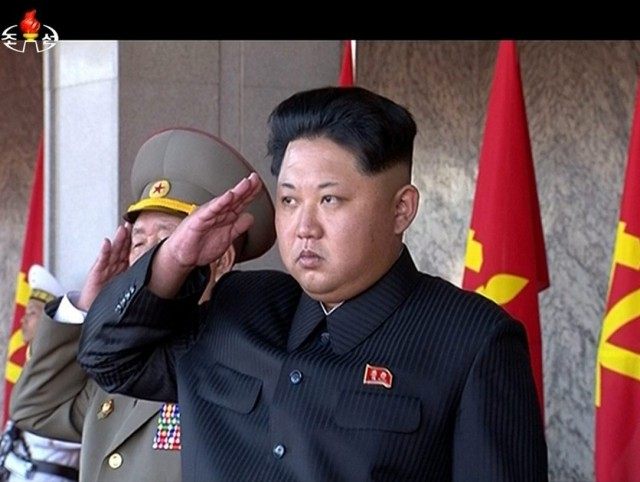The government of North Korea has announced that it will cease communicating with American officials through its mission in New York and instead shift to “relations under the wartime law of the DPRK,” following the announcement of the first direct sanctions on dictator Kim Jong-un by the American government last week.
An announcement in the state-run Korean Central News Agency (KCNA) said that ties between the New York office and the government of the United States would be “completely severed,” KCNA asserted in the announcement of the DPRK’s change of policy that all dialogue would come under “the wartime law of the DPRK and the issue of detained Americans is no exception … The U.S. is wholly to blame for the ensuing unpleasant things happening in the bilateral times.” The government cited the new sanctions on Kim, an unprecedented move by the U.S. government, as the reason.
“The U.S. recently impaired the dignity of the supreme leadership of the DPRK by releasing what they call ‘report on human rights’ and ‘list of targets of special sanctions’ related to the DPRK,” the outlet stated, calling the sanctions “the most hideous criminal act and a declaration of war against the DPRK.”
CNN notes that the announcement of new limitations in an already extremely tenuous bilateral relationship may make any negotiations regarding the liberation of U.S. hostages more difficult. While the U.S. often uses European officials as mediators to discuss the liberation of U.S. captives, its New York office was also a main resource in communicating with Pyongyang. North Korea is currently keeping captive U.S. student Otto Warmbier, accused of taking down a communist poster.
Diplomacy with Pyongyang resulted in the liberation of Christian missionary Kenneth Bae, a move that North Korea has indicated it regrets following the publication of Bae’s book, Not Forgotten, which details the life of a captive in a North Korean labor camp. North Korean media have demanded Bae “commit suicide” for writing the book.
Another major point of contention is the agreement between America and South Korea to place a Terminal High Altitude Area Defense (THAAD) missile system in South Korea as a deterrent to North Korea’s nuclear activities. KCNA railed against the announcement of an official commitment to place the system near their borders, accusing Washington of looking “to turn the peninsula into a theatre of a thermonuclear war and thus implement its aggressive pivot-to Asia-Pacific strategy in real earnest.”
The Rodong Sinmun, the state-controlled newspaper, went a step further and threatened to attack American soil, again. “It is the U.S. and its followers who will suffer from extreme terror and horrible nightmare with the passage of time,” an article titled “Final Victory in Anti-U.S. Battle Is Ours” read. “The DPRK’s capability to make a preemptive nuclear attack will be further bolstered up in the future.”
Pyongyang also threatened South Korea with “the nightmare extreme uneasiness and terror [sic]” for agreement to its own defense, specifying that North Korea has planned a “physical response” to the announcement.
North Korea has increased its belligerent language towards its enemies since January when the government announced the successful detonation of an atomic weapon. While Pyongyang asserted the weapon was a hydrogen bomb, experts contested this claim, citing the relatively small seismic shock the bomb caused. North Korea has since continued to launch ballistic missiles into the sea, in violation of United Nations sanctions, logging its most successful launch yet last month.

COMMENTS
Please let us know if you're having issues with commenting.